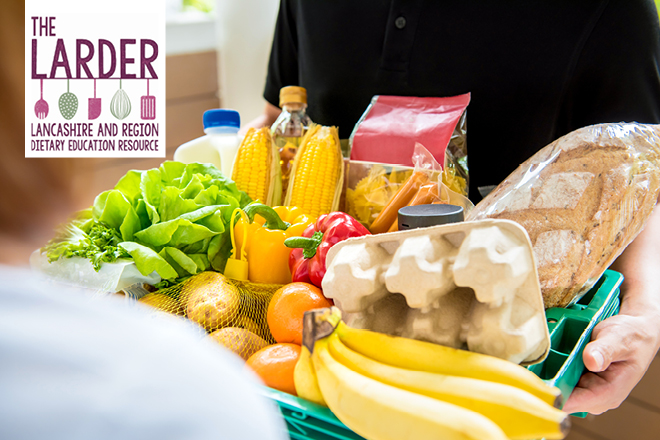Our global food system is broken and, without change, it will continue to negatively impact health, trade, the economy and the environment. Sustainable food advocate Kay Johnson believes we can achieve a fairer and more sustainable food system by "thinking globally, acting locally". Her pioneering work in Preston, Lancashire, is a model of how communities can address food poverty, promote healthier eating, support their farmers and producers and reduce waste.
A radical transformation of our global food system is required to stop its devasting consequences on health and the environment. The United Nations report on the State of Food Security and Nutrition in the World 2020 (SOFI 2020) warns that we are off course to achieve the Sustainable Development Goal of Zero Hunger by 2030. Around 690 million people globally suffer from hunger today and if trends continue this is projected to rise to more than 840 million by 2030, it notes. Furthermore, lack of access to affordable, nutritious food is a major driver of child and adult obesity.
The UK, with the sixth largest economy in the world, is by no means immune to food poverty. According to the Food Foundation and Oxford University’s review of UN data, 8.4 million people in the UK struggle to put food on the table.

A fairer food system for all
Kay Johnson, a trained chef and nutritionist, is on a mission to create a fairer food system for all. She has chosen to make a difference in Preston, where the Campaign to End Child Poverty estimates that one in every four children live in poverty. Here she is working with the local community to create a sustainable food system that she hopes will also lead to a healthier, happier and more prosperous future for the city and beyond.
In 2015, Kay launched the Sustainable Food Lancashire initiative to tackle food challenges in the county, along with a Charter to guide efforts. She then set up the Lancashire and Region Dietary Education Resource (The Larder) in Preston, which includes a food academy and a café supported by a National Lottery Award of £250,000.
“Preston has a number of disadvantaged communities where people often find it difficult to access fresh local produce,” explains Kay. “The Larder was established to work with these communities to identify issues and co-design solutions in the hope of creating a fairer food system.”
Tackling food poverty
Kay and her team have created a raft of programmes to help the community of Preston gain better access to fresh, affordable food, as well as learn how to make nutritious meals at home.
To support the community during the COVID-19 crisis, for example, The Larder has been supplying nutritious cooked meals to those referred by the Housing Association, Age Concern and Social Services. At present it provides 200 weekly meals to 40 families, but at the height of the lockdown restrictions this rose to as many as 120 meals per day.
The discounted food card scheme will have a positive impact on the local economy and the environment as well as tackling food poverty
Holiday hunger
Now during the summer holidays, The Larder is reaching out to those who are vulnerable to food poverty through a programme that teaches children and their families how to cook nutritious meals from scratch.
The families receive an ingredients kit, online cooking classes and interaction over Facebook. A total of 36 families participated in the Kids in the Kitchen programme during the Easter holidays and another 120 are involved this summer.
“The children are trying new things they’ve never tried before, people that have been depressed have found it has given them something to do, it’s brought families together and it helps families struggling to feed their children over the holiday period,” says Kay.
The Food Academy
Beyond addressing food poverty, Kay and her team are eager to share food knowledge and help people gain food skills. Much of this work is done through The Larder’s Food Academy, an approved training centre that runs various programmes including courses for people interested in learning about nutrition or how to cook with fresh ingredients.
The Food Academy offers accredited catering courses, food hygiene course for Syrian refugees in Lancashire and a programme to train up Food Champions who deliver food and health related courses throughout the community. These courses help people to gain the confidence and experience they need to enrol at college or land a job.
A discounted food card scheme
The next project in the pipeline for Kay and the team is to develop a discounted food card scheme. In collaboration with national and local organisations, the team aims to help disadvantaged groups and those on low incomes buy locally sourced produce at selected shops and markets. In addition, Kay hopes to establish a procurement enterprise that helps businesses to buy locally, with profits used to fund The Larder’s initiatives.
“The discounted food card scheme will have a positive impact on the local economy and the environment as well as tackling food poverty,” says Kay. “We are trying to develop a fairer system that will make that food affordable to people on low incomes, without farmers bearing the cost. It’s a huge challenge but we are supported by experts locally and nationally who are working with us to develop a solution.”
